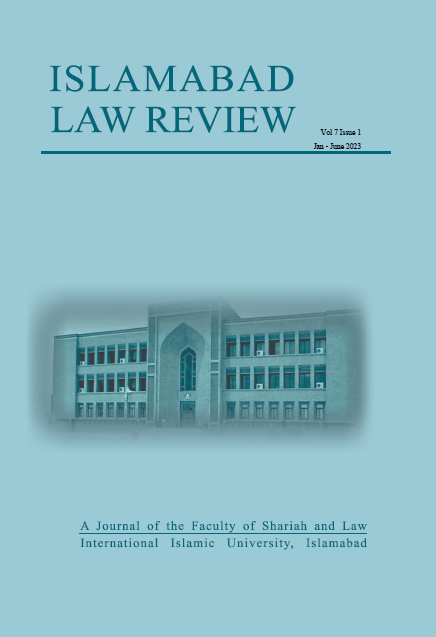The Interlink between Environmental Justice and Climate Change under National, International, and Islamic Law
الملخص
The notion of environmental justice suggests that every community enjoys the right to equitable treatment, equal opportunity for involvement, and equal safeguards in the development, adoption, and execution of environmental rules and laws. Islamic law also has the idea of environmental justice ingrained into it. However, present-day everyone's physical and mental health is at risk from climate change, while economically and socially disadvantaged population is at more risk than others. The predicted effects of global warming on the well-being and health of people have begun to appear in some cases. The Constitutional law in Pakistan does not explicitly recognize one's right to the environment. However, in Supreme Court decisions, the basic right to life guaranteed by Article 9 of the Constitution of Pakistan, 1973 has been expanded to include the pursuit of environmental justice. In addition, the Pakistan Climate Change Act, 2017 was published for the first time in 2017. This article explores aspects concerning environmental justice, and offers remedies from an Islamic viewpoint. It concludes that the government and the populace should take proactive measures to mitigate climate change by using the International Bill of Rights and the Islamic Law by inculcating the Prophet's (PBUH) Sīrah.


